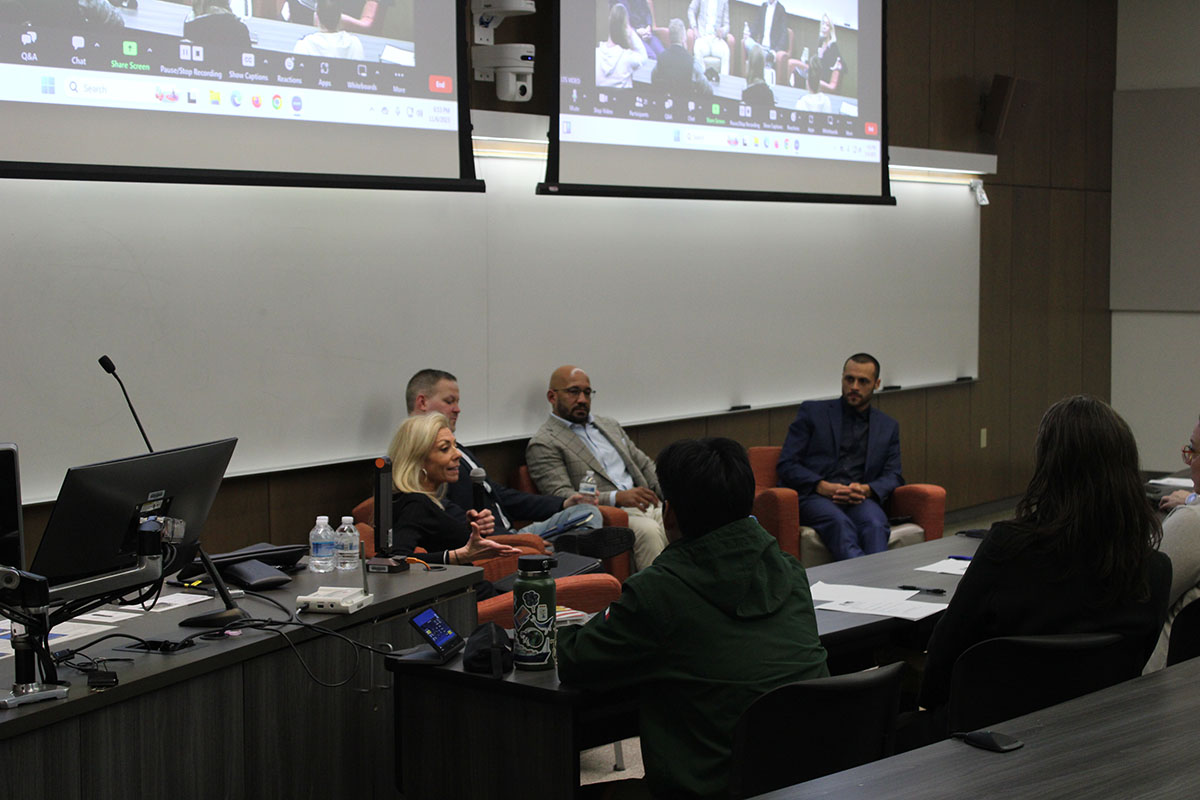5 p.m. on Monday, Nov. 6, a panel was conducted as a part of the Correcting the Narrative Program which aims to alter how people perceive those with criminal records or who have been incarcerated and is co-sponsored by the Menard Center for Constitutional Studies (MCCS).
The program is a part of The Community, which was founded by the event’s moderator Shannon Ross.
Other panelists in attendance were Kelli Thompson, a former state public defender, Sheriff Dave Riewestahl of Eau Claire County and David Carlson, a co-owner of C.C. We Adapt.
The event started with a film consisting of interviews with several people who had been incarcerated.
Some of the speakers on the panel, Ross and Carlson, had been incarcerated before with Ross having been incarcerated for over 17 years.
Ross said that the longer someone is incarcerated, the more trouble they have readjusting to society.
“I never actually got comfortable in prison, which allowed me to be comfortable when I got out here. So the reverse of that is some people get comfortable inside and when you get comfortable there because you’re going to be there for a long time, it’s difficult to transition back to society,” Ross said.
Thompson said that incarceration has had many effects on clients and their families, such as not allowing some people to get driver’s licenses, which has made it hard for them to get around or pick up their kids.
She said it has also had an effect on some client’s mental health. Ross said he had also noticed the effects on some of his friends as well.
“I have not experienced them so that makes me more likely to spend a lot of my time in this work because other people aren’t able to because they’re struggling with things I never had to struggle with in my re-entry,” Ross said.
Ross was released from prison three years ago and since then has met many other incarcerated individuals, including someone who was incarcerated for over 40 years.
While Ross currently works on The Community, the Correcting the Narrative program and his podcast, “All In All Out,” Thompson still takes on public defense cases.
She said the criminal justice system is underfunded and she and other public defenders typically take on cases because they love their job.
“They’re not doing it for the money,” Thompson said.
She said that she still experiences “compassion fatigue” in her job sometimes. Thompson also said her job has changed since the introduction of new technology and because of “behavior being criminalized” as she calls it making people more ready to blame and punish others.
When altering people’s views on how people who have been incarcerated are treated, Ross said that people sharing their stories can help bring attention to this issue but not always good attention.
“A lot of folks that are telling the story shouldn’t be the one telling the story because they’re actually telling it in a way that is painting the issue and themself in a more bigoted light,” Ross said.
Ross said there is no exact solution to this issue.
Even more interview videos, in addition to the ones included in the film, can be found on The Community website.
Liz Curtin can be reached at [email protected].








